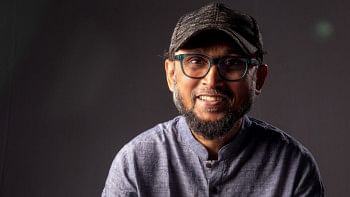Seminar points to anti-graft law reforms
Reforms in law could make it a more effective tool to curb corruption, pointed out a seminar in Dhaka yesterday.
“The anti-graft law, now in place, is flawed and weak, which has made elimination of corruption a task next to impossible,” Mahiuddin Khan Alamgir, chairman of the parliamentary standing committee on public accounts, told the discussion.
Held at Bangabandhu International Conference Centre, it was organised by USAID Progati in association with the offices of Comptroller and Auditor General of Bangladesh and Controller General of Accounts.
The government has to consider making necessary amendments to the existing law so that the state-run anti-graft body, Anti-corruption Commission, is strengthened, suggested the parliamentary body chief.
Khan also stressed raising pro-ductivity.
"When there is a system of equal distribution of wealth, there is no corruption, ideally," he said.
James F Moriarty, US ambassador to Bangladesh, said the fight against corruption requires a strong partnership among government, civil society and media.
"These bodies have to work together on building a foundation for more just and fair governance, and to build demand for greater transparency and accountability within the public and private sectors," he said, suggesting strong leadership to free the society from graft.
Shaheen Anam, executive director of Manusher Jonno Foundation -- a non-governmental organisation --, pointed to the urgent need to ensure transparency in public and private sectors.
"There is a tendency to keep information secret. Such mindset should be changed in order to get a corruption-free society," she said.
"Here the right to information [RTI] plays a very significant role in ensuring transparency and accountability," Anam added.
“RTI protects all other rights because familial, social, political and aeconomic aspects of life are shaped by information that is to be available to everyone,” the top official of the NGO said.
She also pointed out that in the long run, RTI will help ensure accountability in public fund usage and good governance as well.
Farooq Sobhan, president of Bangladesh Enterprise Institute, moderated the seminar, attended by Abdur Razzaque, food and disaster management minister, as chief guest.

 For all latest news, follow The Daily Star's Google News channel.
For all latest news, follow The Daily Star's Google News channel. 



Comments